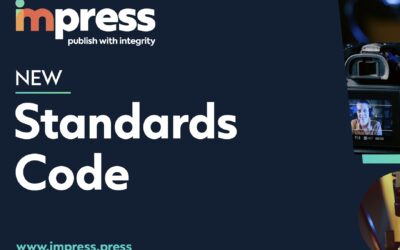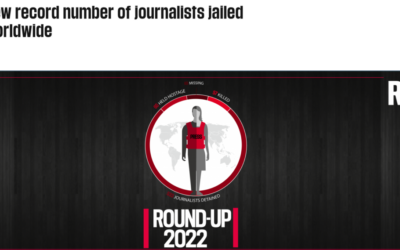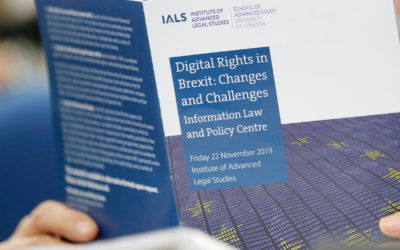Information Law and Policy Centre
The Information Law and Policy Centre (ILPC), based at the Institute of Advanced Legal Studies (University of London), launched in spring 2015. The Centre’s mission is to undertake, promote, and facilitate, cross-disciplinary scholarship and research in the area of information law and policy, domestically and internationally, in collaboration with a variety of organisations within the public and private sectors, and civil society.
The work for the Centre is led by its Academic Director, Dr Nóra Ni Loideain.
ILPC Annual Conference 2023 – Human in the Machine: Digital Rights and AI
Dates: 23 November 2023; 10:15 – 18:00 (in-person) and 24 November 2023; 9:00 – 12:45 (online via Zoom)
Venue: Institute of Advanced Legal Studies, 17 Russell Square, London WC1B 5DR
The ILPC’s 8th Annual Conference will explore the impact of policymaking on systems concerning human-data interaction, automated and self-learning systems, including generative AI, that are increasingly used across society. Particularly the implications of these systems for the rights and responsibilities of individuals and organisations. All panels will address the development and future of these developments for regulation, policymaking, and governance within the UK, Europe, and internationally.
The ILPC Annual Conference will also include the ILPC Annual Lecture 2023 and we are delighted to announce that Robert Spano , former President of the European Court of Human Rights, will be delivering this year’s Annual Lecture.
Attendance (in person and online) is free thanks to the support of the School of Advanced Studies (SAS) and our sponsors, although registration is required as places are limited. Details about how to join the virtual event (Friday, 24 November) will be circulated via email to registered attendees closer to the event date.
Full Conference Programme is available here.
For futher details and registration, click here.
Blog
Journalism has Changed: A New Standards Code for Modern Journalism
Author: Dr Peter Coe On the 16th of February Impress, the Press Recognition Panel approved regulator of the UK press, launched its new Standards Code and Guidance (the new Code and Guidance will come into force on the 1st of April 2023). As a member of the...
It is a Long Way to… E-Evidence: EU Reforms in the Collection of Electronic Evidence Part 2 – The Role of Service Providers
Author: Marine Corhay On 25 January 2023, the Council of the EU confirmed an agreement with the European Parliament has been reached on both the draft regulation and the draft directive on cross-border access to e-evidence. The first part of this article...
Policy Developments at the UN regarding the Safety of Journalists
Author: Dr Gemma Horton (University of Sheffield) Safety of Journalists In recent years, the threats that journalists face in their work have grown considerably. The development of technology has meant that journalists are subject to online violence for the...
Current Developments
- ‘NHS data breach: trusts shared patient details with Facebook without consent’. The Information Commissioner’s Office (ICO) is investigating, The Guardian (27 May 2023).
- ‘Rishi Sunak races to tighten rules for AI amid fears of existential risk’, The Guardian (26 May 2023).
- ‘Meta’s fine has repercussions for EU-US data flows’, Financial Times (25 May 2023).
- ‘OpenAI warns over split with Europe as regulation advances’, Financial Times (25 May 2023).
- ‘Ministers looking at body-worn facial recognition technology for police’, The Guardian (16 May 2023).
ILPC Seminar Series 2022
Spotlight Series
In conversation with: Graham Smith, Of Counsel, Bird & Bird LLP
Graham Smith is of counsel at Bird & Bird LLP, based in London. He is one of the UK’s leading cyberlaw experts, with a practice encompassing advisory and contentious work in the internet, IT and intellectual property fields. In this edition of the Spotlight...
The use of live facial recognition technology through a comparative lens – Angela Daly
The use of (live) facial recognition technology in public places has become a hot topic internationally, with governments keen to implement it as part of ‘smart city’ strategies. In the current moment of COVID-19 and surveillance techniques, some places, notably...
Spotlight: Information Law and Policy Centre Annual Lecture and Conference 2019
Last year, we held our Annual Lecture and Conference ‘Digital Rights in Brexit: Changes and Challenges’, bringing together an eclectic mix of experts, academics and civil society. A plethora of pertinent topics relating to digital rights post-Brexit were explored,...






